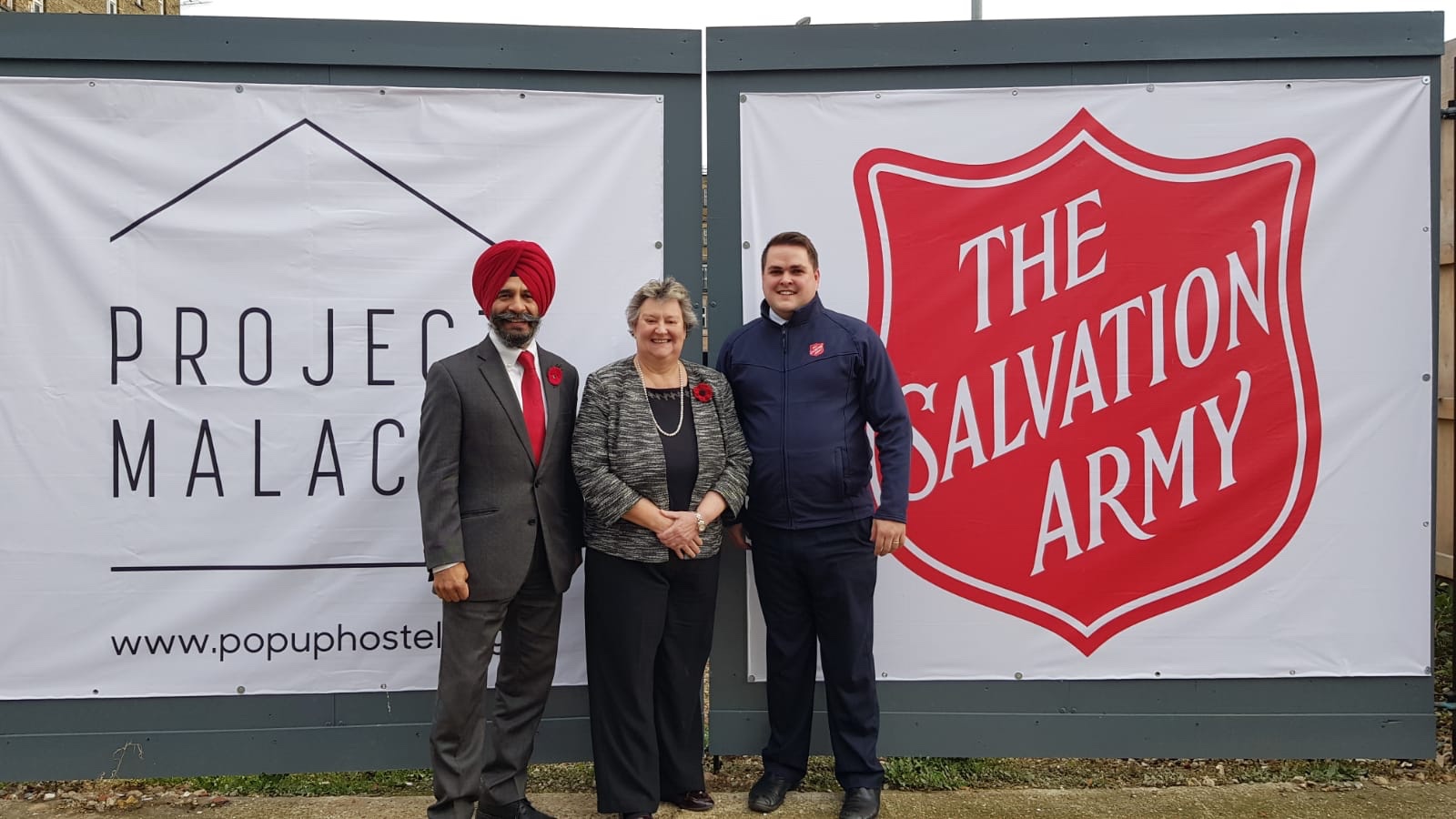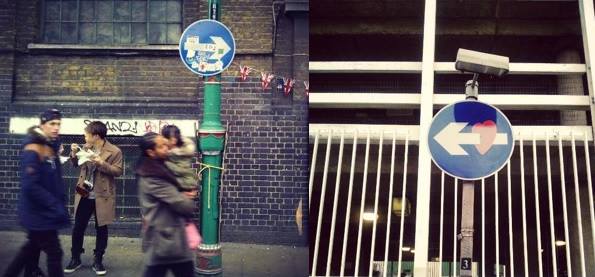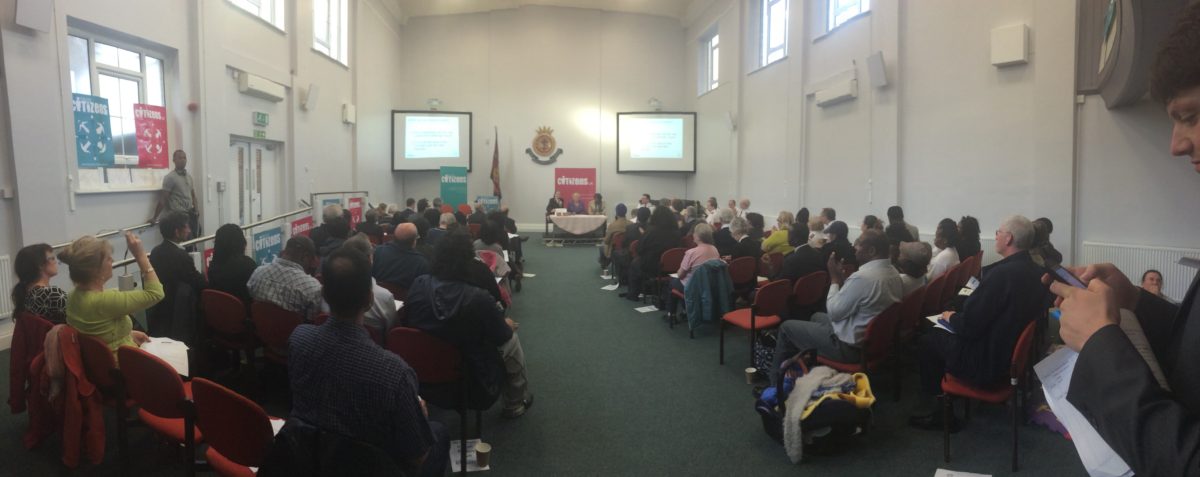Major Jonny Smith hosts a conversation on Facebook Live on 7 May 2020 with three Salvation Army corps leaders – Captain John Clifton (Ilford), Major Estelle Blake (Oldham Fitton Hill) and Major Nick Coke (Raynes Park). They explore themes related to mission, justice, community organising and the local church through stories of hope and transformation.
Category: Politics
Parliamentary Undersecretary for Housing and Homelessness visits Project Malachi in Ilford
Today, Heather Wheeler MP, Parliamentary Undersecretary for Housing and Homelessness, visited Redbridge to discuss the issues the borough is facing with a high number of people sleeping rough. A number of organisations, including The Salvation Army Ilford, were represented at the roundtable meeting with the Minister, Leader of Redbridge Council Cllr Jas Athwal, and Cabinet Member for Housing Cllr Farah Hussain.
— Read on popuphostel-ilfordsalvationarmy.nationbuilder.com/parliamentary_undersecretary_for_housing_and_homelessness_visits_project_malachi
Refugee Week 3: Turning Hope into Action – glimpses of the Kingdom of God in Bicester
By Captain Will Pearson
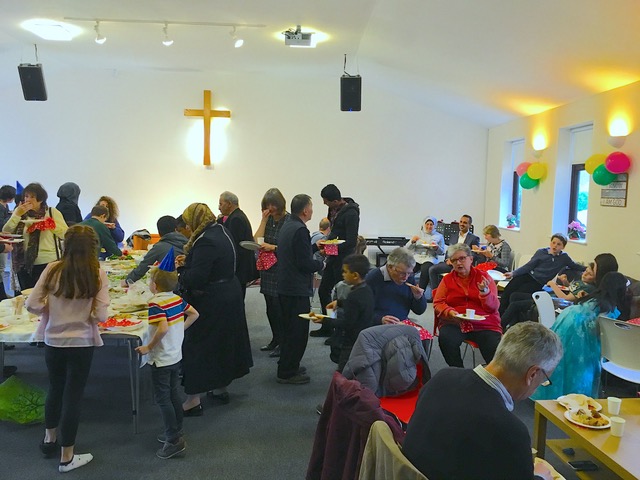 It was the photo of Alan Kurdi that was the tipping point. How can one photo make such a difference?
It was the photo of Alan Kurdi that was the tipping point. How can one photo make such a difference?
We knew in our heads that thousands were dying, but little Alan forced us to pay attention to our hearts and to do something. It wasn’t just numbers anymore, it was people, people like us, children like ours, desperate, afraid and dying every day. We claimed to be a people of hope who believed in a better world. We had to act.
Us Together: Commission on Islam, Participation and Public Life.
Guest post by Cadet Lottie Milner
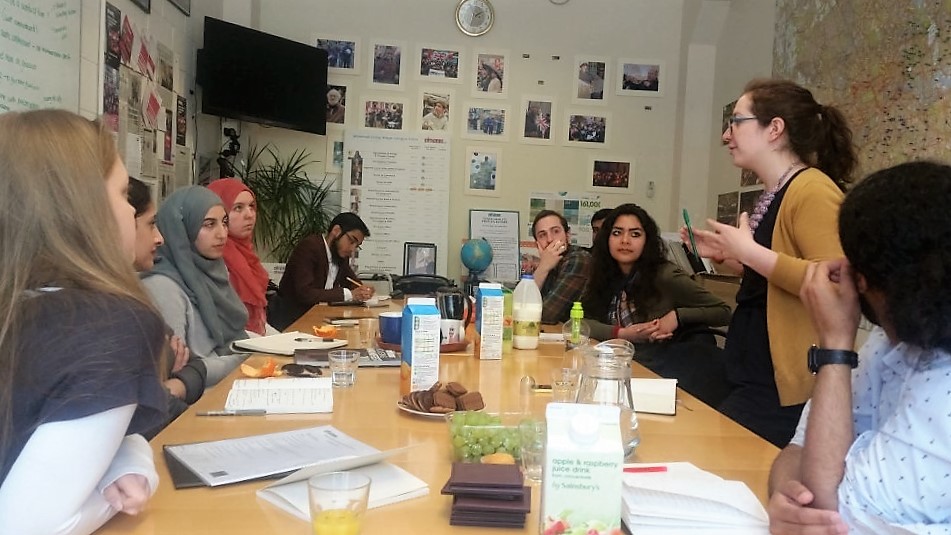
Last July, as a young adult member of The Salvation Army Corps in Stepney, I was invited to take part in a BBC Radio 4 recorded discussion, marking the launch into the Citizens UK Commission into Islam, Participation and Public Life. Gathered together in a room in the East London Mosque were a group of young people from different backgrounds, responding to comments made by David Cameron in his speech about extremism, and discussing the young British Muslim identity. I heard a cry of pain graciously articulated amongst those present that I had not fully recognised before. My eyes were opened for the first time to how multi-faceted the issues facing British Muslims are. We could never have imagined the situation that we see now, a year later.
Continue reading “Us Together: Commission on Islam, Participation and Public Life.”
This is the story of a man, of a revolution and how he led it: Saul Alinsky on John L. Lewis
By Saul D. Alinsky, taken f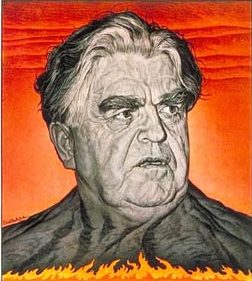 rom the introduction to: Alinsky, S. D. (1970). John L. Lewis, an unauthorized biography. New York, Vintage Books. Pages ix-xiv
rom the introduction to: Alinsky, S. D. (1970). John L. Lewis, an unauthorized biography. New York, Vintage Books. Pages ix-xiv
This is the story of a man, of a revolution and how he led it.
It is relevant to our own revolutionary times. All great social crises turn on certain common concepts. One is that progress occurs only in response to threats, and reconciliation only results when one side gets the power and the other side gets reconciled to it. Another is that the power of organised people is required to defeat the power of the establishment and its money. A third is that effective tactics means going outside the experience of the enemy, and a fourth is that all issues must be polarised. These and other revolutionary concepts hold true through all the revolutions of man, no matter in what place or time.
Five Ways to Live Post-Brexit
by Nick Coke and John Clifton
Let’s get a few things straight from the outset.
One of us voted in, the other out. Neither of us are racist, nor are we members of a sneering elite. We’re not interested in blame, counter-blame or accusation. We agree on this: neither remaining in nor leaving the EU is the answer to all the questions that the people of the UK are asking.
We both live in London although we’re not from London. One of us grew up in the post-industrial north of England, the other in various countries around the world. We have both spent years investing in people at all levels of society because that’s what Salvation Army officers are called to do. We both love Jesus and try to follow him. We both love politics and get involved where we are.
Whilst we voted differently we share a vision of what’s next in a post-Brexit Britain. It is not theory. We know it works because we’ve done it, experienced it, seen people empowered by it, tasted God’s kingdom in it and seen communities changed by it. We describe it here as a picture of hope.
And, of course, hope is an action.
Give, Teach, Train: how one Salvation Army Corps is organising for justice
This article first appeared in Explore Magazine 2016 and is published with permission.
A famous proverb says:
‘Give a man a fish and he’ll eat for a day. Teach a man to fish and he’ll eat for a lifetime.’
Recently, we’ve added a third part:
‘Train a man to organise and his community will feast for ever.’
However, in our part of London, the problem isn’t about having fish to eat – it’s about having a home to live in. Soon after Naomi and I arrived at Ilford Salvation Army, I met a man called Mustafa who had been an accountant. When I met him he had been on the street for a couple of days and came to us for help. What followed was a crash course in navigating bureaucracies. I met Mustafa at around 10 am. It was around 11 pm when I had to say to him: ‘I’m sorry, Mustafa. Here’s a sleeping bag. Come back in the morning.’
I had never felt so powerless in my life.
Power – which in community organising is defined as the ability to act – is the fundamental component of bringing about any sort of change you want to see. We could only make as much change as we had the power to compel.
Give a man a fish – Give a man a bed
People often come to Ilford Salvation Army because we are immediately next door to the council’s Housing Advice Centre. They come to us if they haven’t got the answer they wanted. Too often we can just give someone a sleeping bag and make a referral to set them on the path to finding appropriate support, as with Mustafa. After meeting him, however, in November 2011, we discovered a group of other Christians looking to establish a winter night shelter, following the deaths of two rough sleepers the previous year. Somewhere was needed to host the shelter, and with a large upstairs hall used only for storage, we offered our building as a venue.
Within weeks, 25 men and women were sleeping in sleeping bags on foam mats in our upstairs hall. Soup was served each evening and donations of clothing given out. It was basic, but it kept people alive. Over four winters, over 300 people have stayed at the night shelter. Each guest can tell their own story of the chain of events that led them to sleeping rough on the streets.
The shelter is only possible because of the commitment of over 150 volunteers from a wide range of backgrounds. Salvationists are joined by members of other churches: Catholics, Baptists, Pentecostals, Methodists and non- denominational. We are joined by people of other faiths and none. The current volunteer team includes Muslims, Sikhs, Jews, atheists and agnostics. We are a diverse community brought together to meet a common need. I’ve experienced more meaningful unity of the Body of Christ at the night shelter than I have in any other ecumenical setting.
Teach a man to fish – Help him find a home
A couple of years into the life of the night shelter, we realised that we shouldn’t just be giving people food and a bed. Lifesaving though this was, the night shelter needed to be a base for people to get their lives back on track and move on to a home of their own. We began convening a meeting between different local organisations to discuss what options there were for each person.
Unfortunately not everyone can move on. Last winter less than a fifth of our guests moved on to a more stable environment, whether rehab, hostel or flat. For some, their options are limited by having no recourse to public funds. For others, the obstacle is the lack of genuinely affordable housing in our borough. With the lowest stock of council housing of the London boroughs, people in Redbridge are dependent on private landlords. Rents are much higher than the local housing allowance, which means that people we have worked hard to build relationships with are moving out of the borough. This is true not just for people staying in the shelter, but also for families at our toddler group, and people who consider The Salvation Army their church. Suddenly, we all became aware that the housing crisis isn’t affecting just a niche group of homeless people. It is affecting our families and our friends. It is ripping the heart out of our community.
Train a man to organise – Building a community
Ilford Corps is a member institution of Redbridge Citizens, the local chapter of community organising alliance Citizens UK. Citizens UK is an alliance of over 350 schools, churches, mosques, synagogues, unions, youth groups and universities committed to social justice and the common good. Self-identifying as a ‘power organisation’, Citizens UK trains local institutions in the practice of community organising, so that with their neighbours they have the power to challenge politicians, councils and businesses. By building power, people can change their neighbourhoods, cities, and ultimately the country for the better. At Ilford Salvation Army, we realised we needed to get serious about organising if we were to make the change we wanted. The local elections of 2014 provided an opportunity to take action.
On Tuesday 6 May 2014, 93 citizens met at Ilford Salvation Army hall to hold a public negotiation with the three electoral candidates for leader of Redbridge Council. The three councillors were pressed by this diverse assembly to make commitments to pay a living wage to all care workers, create a private landlords register, explore the possibility of a Community Land Trust (CLT) in the borough, and to meet regularly with Redbridge Citizens to work together in addressing the issues raised at our assemblies.
A lot of hard work had gone into the assembly: negotiations with politicians; a script carefully crafted; conversation convincing members to turn up. This was just the beginning. We didn’t ask the politicians to do something for us; we asked them to do something with us. Months later, a small delegation met the newly elected Leader and Deputy Leader of the Council to follow up on their commitments, including exploring developing a community land trust (CLT).
A CLT is a way to develop genuinely affordable housing by taking the land into the shared ownership of the community. This removes the inflationary considerations of the land value from the cost of rent or purchase, meaning they can instead be linked to the median income of a given area. Stepney Salvation Army, through Citizens UK, had already been involved in pioneering the first urban CLT in the UK, and we believe that developing one within our borough will benefit local people struggling to find affordable places to live.
After months of public actions, we engaged with the borough’s Fairness Commission and succeeded in getting them to recommend that two parcels of land be allocated towards large-scale CLTs. In November 2015, we went to a council meeting at the town hall. We filled the public gallery with 80 of our members and stood together to table a question to seek the Leader of the Council’s endorsement of the CLT. He committed to attending another assembly in February 2016 where we would celebrate signing up 300 new shareholders of the CLT – the #Pound4Power campaign. The night shelter guests have all signed up as shareholders, and one of the guests at the night shelter has signed up nearly 60 new shareholders on her own!
Conclusion
Matthew 25:34-36 says: ‘Come, you that are blessed by my Father, inherit the kingdom prepared for you from the foundation of the world; for I was hungry and you gave me food, I was thirsty and you gave me something to drink, I was a stranger and you welcomed me, I was naked and you gave me clothing, I was sick and you took care of me, I was in prison and you visited me’ (NRSV)
A key aspect of these verses is that the situation is transformed. For example, the one who is hungry is fed. In other words, the homeless person gets a home – not homeless any more! What if we go a step further and recognise that one of the roots of each of these situations is the incapacity to act? Perhaps it’s also appropriate to say, ‘I had no power, but you trained me how to take it back’, so that there’s a fighting chance in that struggle ‘against the rulers, against the authorities, against the powers of this dark world and against the spiritual forces of evil in the heavenly realms’ (Ephesians 6:12 NIV).
My dream for Ilford Salvation Army is that it will not just be a community where lives are saved (though it is), where a community comes together to meet a common need (though it is) and where those sleeping rough come to realise that they are valued and loved by our community (though, again, it is) – but that it will be a place where people find the capacity to act – that power might be built.
Continue reading “Give, Teach, Train: how one Salvation Army Corps is organising for justice”
Just Life
This article first appeared in the Salvationist magazine and is published with permission.
By Nick Coke
I hear the same question all the time. Essentially it’s this: I know we should fight for social justice, but how do we actually do it?
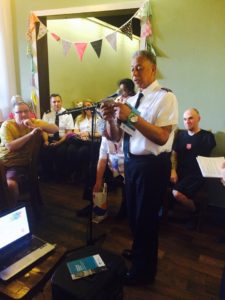 In terms of theological, devotional and motivational material urging us forward in the fight we have never had it so good. The biblical mandate for action is being preached with new fervour in the light of austerity, political upheaval and the refugee crisis. Resources are plentiful – campaign material regularly finds its way into our letterbox, email inbox and social media feeds. Dutifully we follow the instructions to pray, fundraise, get informed and click on the link to another petition website. Online activity in the cause of social change has led to the coining of a new word – ‘clicktivism’. Apparently we’re clicking like we’ve never clicked before. Yet beneath it all comes that nagging question – is any of this really making a difference? It all feels so detached. There’s surely more to justice-seeking than this.
In terms of theological, devotional and motivational material urging us forward in the fight we have never had it so good. The biblical mandate for action is being preached with new fervour in the light of austerity, political upheaval and the refugee crisis. Resources are plentiful – campaign material regularly finds its way into our letterbox, email inbox and social media feeds. Dutifully we follow the instructions to pray, fundraise, get informed and click on the link to another petition website. Online activity in the cause of social change has led to the coining of a new word – ‘clicktivism’. Apparently we’re clicking like we’ve never clicked before. Yet beneath it all comes that nagging question – is any of this really making a difference? It all feels so detached. There’s surely more to justice-seeking than this.
Ten years ago those nagging doubts started my journey towards a more active justice-seeking faith. What follows are four lessons I have learnt along the way. I share them with the hope they might provoke and encourage you a little.
LIVING A JUST LIFE
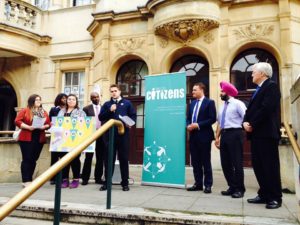 The beginning of justice-seeking is neither an action nor a programme. As an officer once reminded me: ‘We don’t do social justice – we live justly.’ In Salvation Army theology it springs from our holiness teaching, where the inner life of a believer, orientated around a relationship with God, spills over into public life. Faith may be personal but it’s never private. The inner working of our hearts is manifested in hundreds of actions and decisions we make every day. Living a just life begins with how we treat others, who we include, how we use our wealth and time. This applies to those closest to us, neighbours and work colleagues, our corps family and, by extension, the whole of humanity. The rather wonderful truth I’ve discovered is that the more I’ve chased personal holiness the more compelled I’ve been to seek a just world and the more justice-seeking I’ve engaged with the more convicted I’ve been about personal transformation.
The beginning of justice-seeking is neither an action nor a programme. As an officer once reminded me: ‘We don’t do social justice – we live justly.’ In Salvation Army theology it springs from our holiness teaching, where the inner life of a believer, orientated around a relationship with God, spills over into public life. Faith may be personal but it’s never private. The inner working of our hearts is manifested in hundreds of actions and decisions we make every day. Living a just life begins with how we treat others, who we include, how we use our wealth and time. This applies to those closest to us, neighbours and work colleagues, our corps family and, by extension, the whole of humanity. The rather wonderful truth I’ve discovered is that the more I’ve chased personal holiness the more compelled I’ve been to seek a just world and the more justice-seeking I’ve engaged with the more convicted I’ve been about personal transformation.
MOVING TO THE EDGES
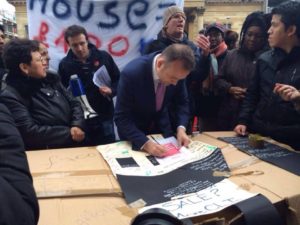 While justice begins with God, it clearly involves people. In the Exodus story the groans of the Israelite slaves rise up before God and initiate a social justice movement (Exodus 2:23–25). In today’s world we constantly hear the groans for ourselves – the low-paid worker at the food bank, the refugee, the homeless and the discriminated against. Most of us long to end such suffering. The uncomfortable truth, however, is that real justice-seeking compels us to move to the edges and experience first-hand the sufferings of others before we can act. There really is no other way. Of course when we get there we discover God is well ahead of us.
While justice begins with God, it clearly involves people. In the Exodus story the groans of the Israelite slaves rise up before God and initiate a social justice movement (Exodus 2:23–25). In today’s world we constantly hear the groans for ourselves – the low-paid worker at the food bank, the refugee, the homeless and the discriminated against. Most of us long to end such suffering. The uncomfortable truth, however, is that real justice-seeking compels us to move to the edges and experience first-hand the sufferings of others before we can act. There really is no other way. Of course when we get there we discover God is well ahead of us.
In justice-seeking circles I hear the phrase ‘being a voice for the voiceless’ over and over again. But true justice- seeking demands something more costly and sacrificial than speaking on someone’s behalf from a safe distance. Far better to stand with someone as they find a voice of their own. To sit with the homeless person who just got
evicted unfairly, to listen to the asylum seeker who was mistreated at the immigration centre, to turn up at the mosque that has just been daubed with anti-Muslim graffiti. When we personally connect with the issue then we really start to get stuck in.
FIGHTING THE GOOD FIGHT
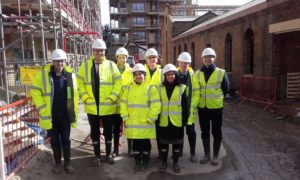 Once personally involved in the sufferings of others, it is tempting to offer charity and stop there. We meet the need, bandage the wound and move on. Most likely people will call us saints.
Once personally involved in the sufferings of others, it is tempting to offer charity and stop there. We meet the need, bandage the wound and move on. Most likely people will call us saints.
Justice-seeking, however, walks a different path as we seek to move beyond the sticking plaster to tackle the root cause. Careful analysis is required to unearth the issue, to research in detail the layers behind it and to identify those with power to change things. When working for change, moments will come when we face challenge. Earthly and spiritual powers will do their best to block our way. Disturbing the status quo or pointing out an injustice will not always make us friends. No longer will
everyone call us saints and some will consider us troublemakers. This is often where we begin to falter. We like to be popular. History, however, reminds us that justice is always, always a struggle. We must purposely and prayerfully push on.
POLITICS, BUT NOT AS YOU KNOW IT
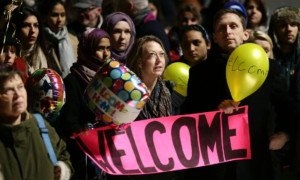 The final stage is to move from a protest voice on the margins into the corridors of power, where decisions are made. Forcing your way into this space can happen only when we organise ourselves to be powerful enough for decision-makers to take notice. This is the work of politics – not party politics – but community-based, people politics. And this is where corps and centres come into their own. After all, we know our communities and, in most cases, we have been a constant presence for generations. Almost every local expression is connecting directly with those who suffer injustice and, crucially, we are collectives who exist to transform the world! In a society where institutional
The final stage is to move from a protest voice on the margins into the corridors of power, where decisions are made. Forcing your way into this space can happen only when we organise ourselves to be powerful enough for decision-makers to take notice. This is the work of politics – not party politics – but community-based, people politics. And this is where corps and centres come into their own. After all, we know our communities and, in most cases, we have been a constant presence for generations. Almost every local expression is connecting directly with those who suffer injustice and, crucially, we are collectives who exist to transform the world! In a society where institutional
life is waning, it positions us in an extraordinary place to be justice- seekers.
When we look at our neighbourhoods we soon discover others who share our concerns for justice: faith organisations, schools, community groups. The work of building broad and powerful alliances of justice-seekers will position us around the table where we can speak truth to power and be heard.
The good news is that I hear stories of Salvationists increasingly joining in exactly this kind of grassroots justice- seeking and of powerful transformational results. My prayer is that we grasp the moment presented to us. May God bless us with his holy discomfort to live the just life.
I May Not Get There With You: The True Martin Luther King, Jr. by Michael Eric Dyson
Guest post by Tom Underwood
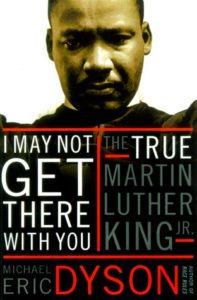 Whilst much has been written about the life and work of Martin Luther King Jr. this is a book that goes beyond autobiography to assess the legacy of King in America today.
Whilst much has been written about the life and work of Martin Luther King Jr. this is a book that goes beyond autobiography to assess the legacy of King in America today.
From the outset of the book Dyson makes clear his belief that King is “the greatest American who ever lived.” He then goes on to share three central mistakes people make in relation to King’s legacy; ideas, identity and image. Rather than a chronological guide to King’s life the book is then divided into these three core areas.
The chapters in the ‘ideas’ part of the book seek to reestablish the radical nature of King, particularly by exploring his changing beliefs in the last years of his life.
“King has been fashioned to calm rather than trouble the waters of social conscience in the post-civil rights era. But he was no Safe Negro.”
It is fascinating to read about the changing perspectives that caused him to speak out against the horrors of the Vietnam war and organise action against poverty. In his last years King had, “… a commitment to showing the lethal links between racism, militarism and poverty.” Martin Luther King is now honored with a national holiday in America so it is easy to forget that in the few years leading up to his death his views on Vietnam, black nationalism and poverty were making him increasingly less popular with whites and also meeting with opposition from within the African American civil rights movement.
The second part of the book deals with identity and chapters in this section directly address King’s plagiarism, the insatiable sexual appetite that led to multiple affairs and his patriarchal chauvinism. The writer Dyson met with criticism from some within the African American community for criticising King yet he counters that it is essential to connect with the humanity of King otherwise he becomes an unhelpful hero, someone who is so worshipped and adored that he becomes impossible to live up to and then alienating to young African American’s in America today.
Finally, the book deals with how King’s image’s is used today. I personally found this section of the book less interesting than the others as it moves away from King to cover his family’s wrestle for control over his image after his death.
If you’re looking for an autobiography on the life of King this is not going to be for you. However, if you know the history of King and want to read more in-depth this is an accessible academic study of his legacy.
As Christian activists it provides much helpful advice through the prism of King’s life. Most of all it challenges us today as it reminds us of the sacrifice involved in following God by pursuing justice. For thirteen years King lived in the spotlight of the civil rights movement with the constant fear of death, for King, “His most enduring trophies were the calluses he gathered from marching for justice in merciless heat and the sore knees he gained from bending to pray for enemies he defiantly loved.”
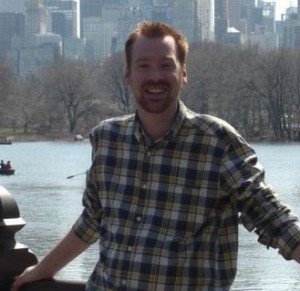 Tom Underwood teaches young people with autism and writes plays about peace. He is currently writing about peace activism and arms trade activists. He worships at Raynes Park Community Church and tweets @tomcunderwood
Tom Underwood teaches young people with autism and writes plays about peace. He is currently writing about peace activism and arms trade activists. He worships at Raynes Park Community Church and tweets @tomcunderwood
Ce n’était pas la fin, ce n’était que le début
(Ceci est une traduction de ce billet. En tant que francophone, vous êtes peut-être peu familier avec certains concepts qui n’ont pas été expliqués dans l’autre billet. N’hésitez pas à commenter pour demander des explications ou clarifications).
Il y a quelques semaines, London Citizens a organisé une “assemblée municipale” [Mayoral Assembly] à la Copper Box, enceinte sportive construite pour les JO en 2012. Le but était de rassembler 6000 citoyens pour construire des relations positives avec les deux principaux candidats à l’élection – donc le probable futur maire – et de leur faire prendre des engagements à travailler avec nous. Les deux candidats ont accepté pas mal de nos demandes. Mais cet évènement n’était pas la fin, ce n’était que le début.
Continue reading “Ce n’était pas la fin, ce n’était que le début”

